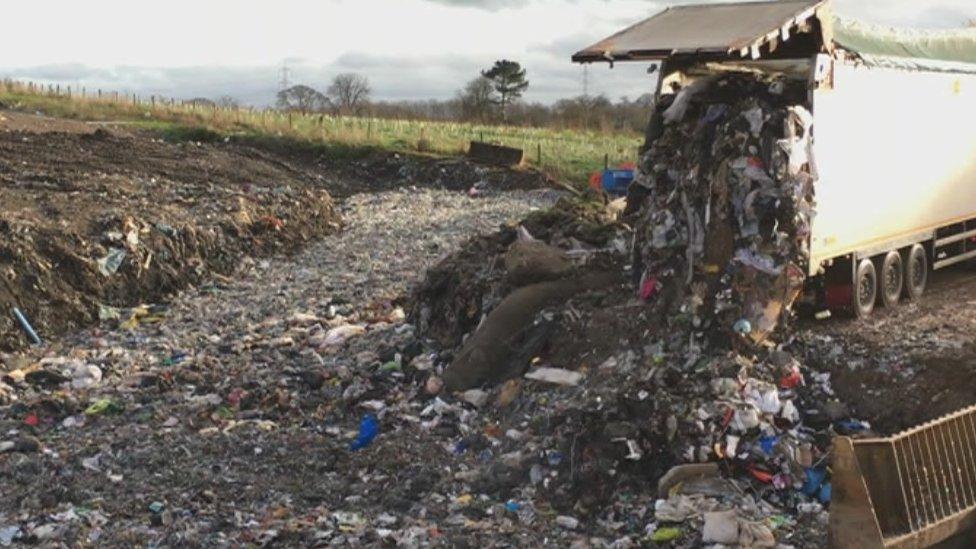Pushing recycling policies 'could lead to fly-tipping'
- Published
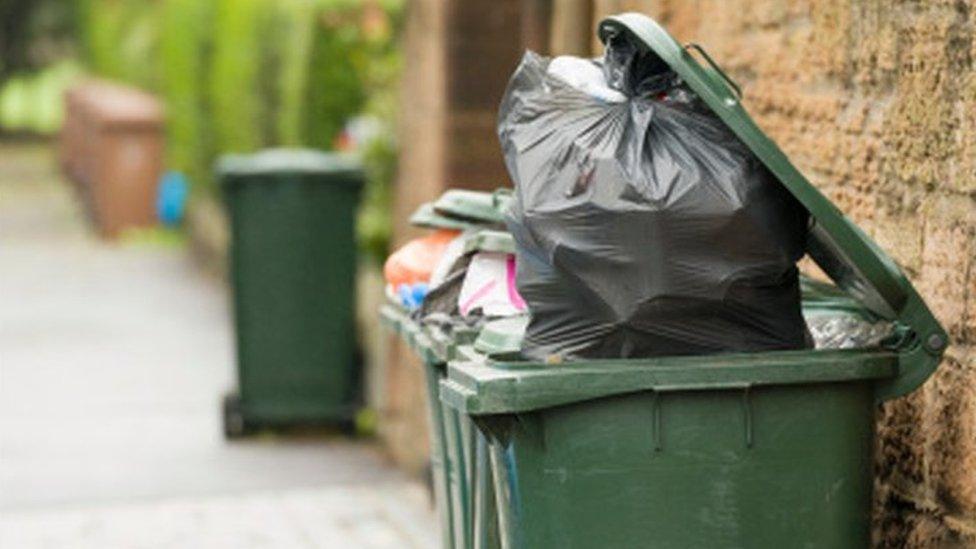
Implementing stricter recycling policies too fast across Wales could lead to fly-tipping problems, an assembly member has warned.
Wales is leading the way among the UK nations and is aiming to become one of the top recycling nations.
But Llanelli AM Lee Waters said the push to achieve targets could create "unintended consequences".
The Welsh Government said there was no evidence waste collection frequency changes led to more fly-tipping.
Mr Waters said Carmarthenshire council was doing things with "the best of intentions" but which were having "knock-on consequences", such as a policy involving the collection of just four bin bags every fortnight.
"Some families are trying to get around that by putting their bin bags in front of neighbours' houses," he said.
"And when that's being reported, they're being prosecuted, quite rightly, but to avoid that they are then fly-tipping," he said.
Mr Waters said Carmarthenshire has some of the best recycling rates in the country but now it was time to tackle "the hard bits", including people who do not want to co-operate.
"But I think there's a judgement for us all to reach about how far do we want to push this because, if we push it too far, too fast, we're going to create unintended consequences," he said.
BBC Wales follows the journey of an aluminium can from the bin to landfill
"So, we may well hit our litter targets but we'll also create fly-tipping problems and broader littering problems which will increase costs."
Christine Clarke, who lives near Llanelli town centre, has experienced problems with people dumping black bag waste in the lane behind her house.
"It's been horrendous," she said. "We've had rats running around and it's not just this lane, it's all the back lanes in Llanelli."
A Carmarthenshire council spokesman said fly-tipping was not unique to Llanelli, however, it was "working hard" to address issues there.
He said: "Although generally street cleanliness is good, there are hotspot areas in the town centre, such as the rear lanes which are prone to fly-tipping and anti-social behaviour.
"Unfortunately, as soon as they are cleaned up, it is not long before they are back in the same mess yet again."
A new taskforce will meet for the first time next month, with the aim of bringing together environmental and enforcement officers, councillors and police in finding a long-term solution.
'Disastrous consequences'
Other areas in Wales are seeing similar problems, such as Conwy county where many residents are said to be unhappy with the council's decision to move away from a fortnightly general waste collection to one every three weeks.
Clwyd West Conservative AM Darren Millar said: "When bin collections were fortnightly, support was good and Conwy increased its recycling rates so it became one of the best in the country - all credit to the council for that.
"Unfortunately, there's less support now due to that increasing to collections every three or four weeks, which is having disastrous consequences as we're experiencing a massive increase in roadside litter and fly-tipping.
"In addition, there are issues now with people burning waste and pest control."
A Conwy council spokesman said: "Three-weekly refuse bin collections and a trial of four-weekly bin collections were introduced in Conwy from September.
"The move came after a study found that more than half the items placed in wheelie bins in the county should have been recycled - wasting £1.6m every year.
"If residents have piles of extra bin bags that won't fit in their bin, as part of the trial we visit households on an individual basis to find out what's in them and how we can help."
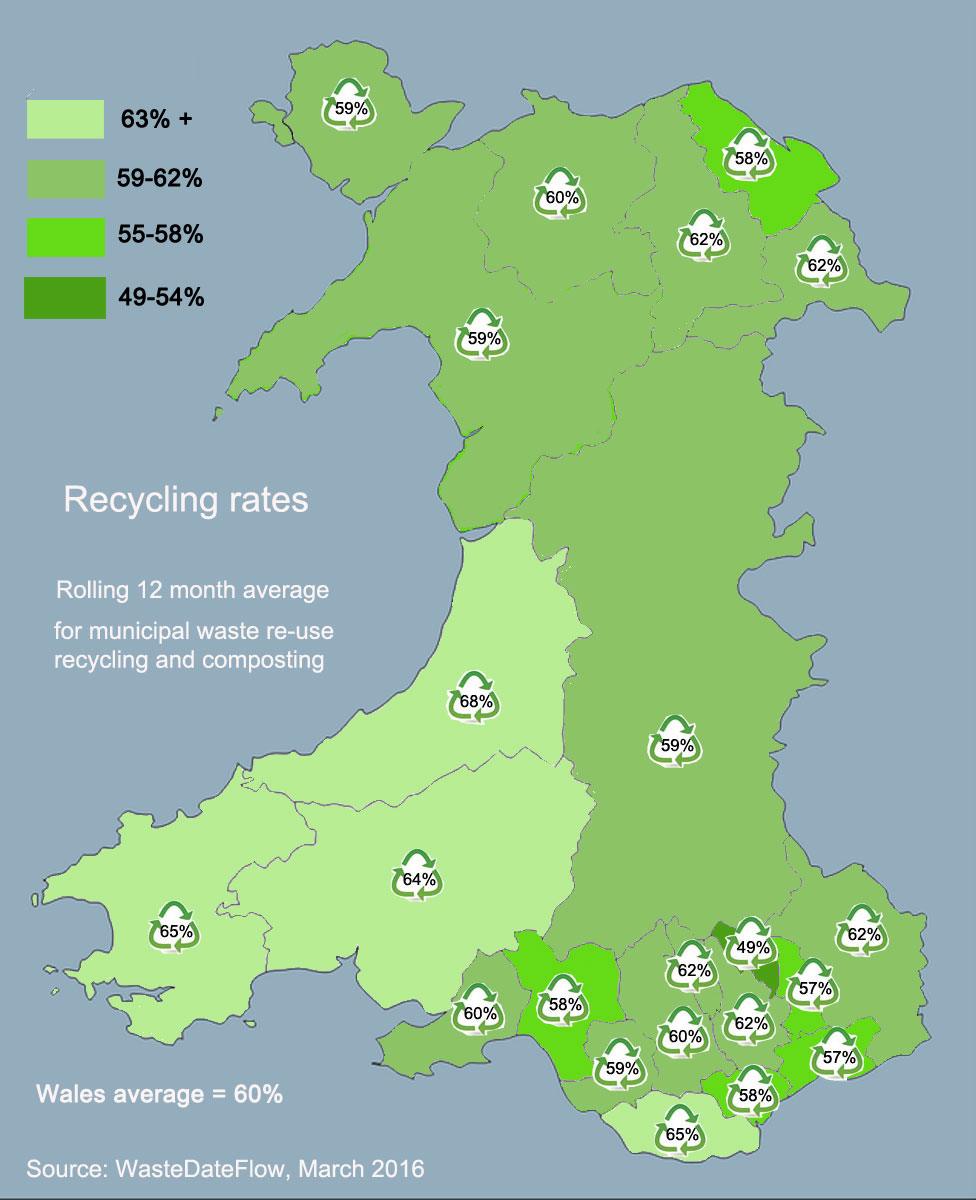
In an attempt to improve recycling rates in Swansea, the council has a three black-bags-per-household policy for its fortnightly collections.
Swansea council said, in general, it had "no significant issues" with people being able to keep within the three-bag limit, with an increase in recyclable domestic waste collected and a reduction in black bag waste.
But since many dumps in the local authority stopped taking black bag waste last year, some claim this could increase fly-tipping.
There is also evidence litter bins are being used to deposit household waste. Litter bins in Penllergaer, for example, now have stickers on them warning people not to dump their black bags inside.
Local councillor Wendy Fitzgerald said: "You've got to be aware that three bags is not going to suit everyone all of the time and the fact that, in most places you can't dispose of any excess black bags in the local amenities site, is going to encourage people to dispose of their bags improperly."
The Welsh Government said it made "no apologies" for its commitment to increasing recycling.
"By recycling more we reduce the need to use natural resources, decrease the need for landfill and save money," a spokesman added.
"We are already making excellent progress. We are the fourth best performing country in Europe, leading the way in the UK and exceeding the current 58% recycling target set in our strategy Toward Zero Waste."
The Welsh Government said the frequency of collections was a matter for individual local authorities but evidence showed restricting residual waste increased recycling and reduced disposal cost.
The spokesman said they were not aware of evidence linking changes in residual waste collection frequencies to increased fly-tipping.
"However, fly-tipping is unacceptable," he added. "It is unsightly, bad for the environment and is expensive to clear up.
"This is why we recently launched a consultation to gain the views of all interested parties on proposals to give local authorities the power to introduce fixed penalty notices."
- Published28 October 2016
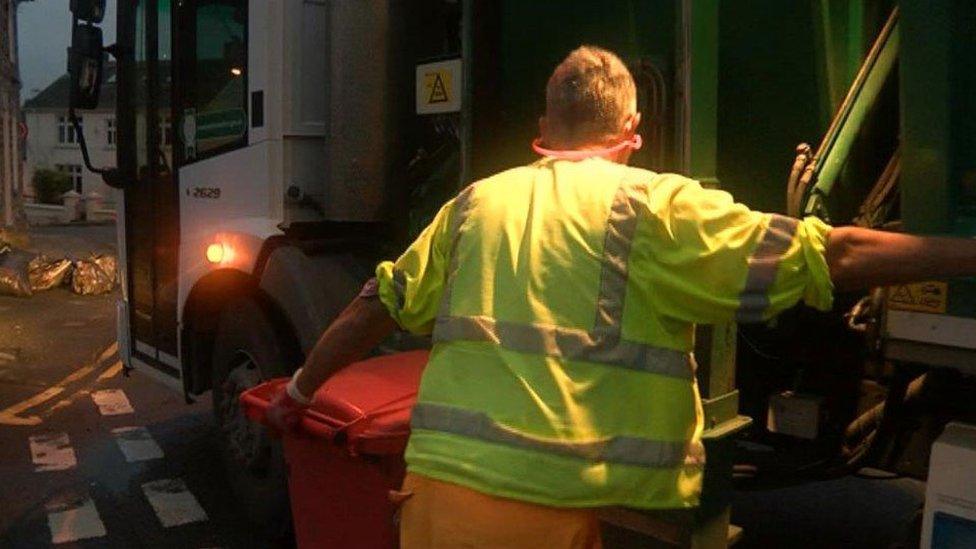
- Published24 August 2016
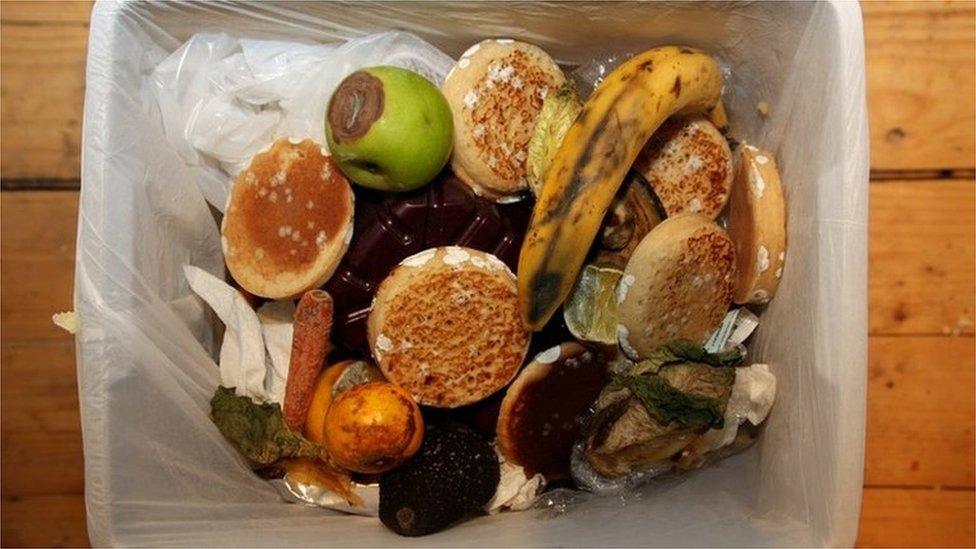
- Published22 November 2016
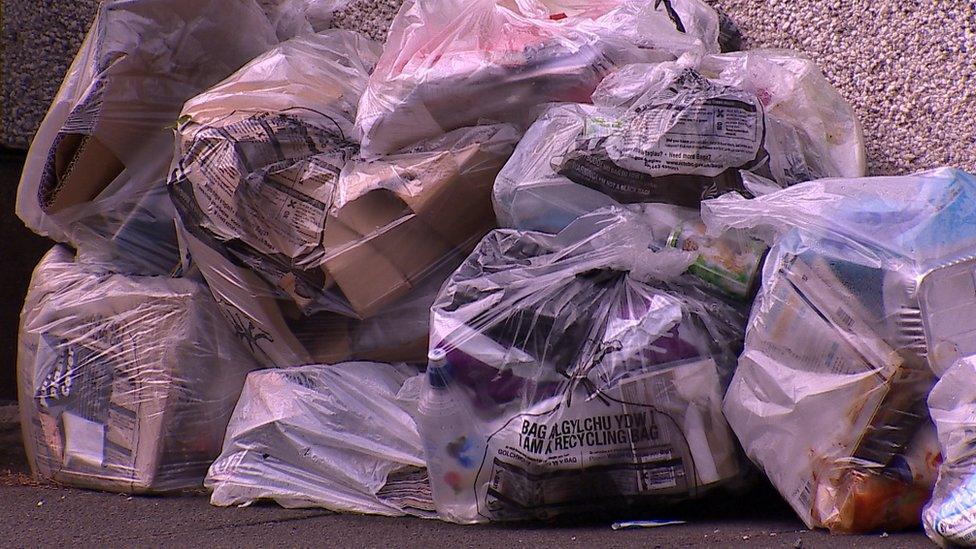
- Published21 January 2016
